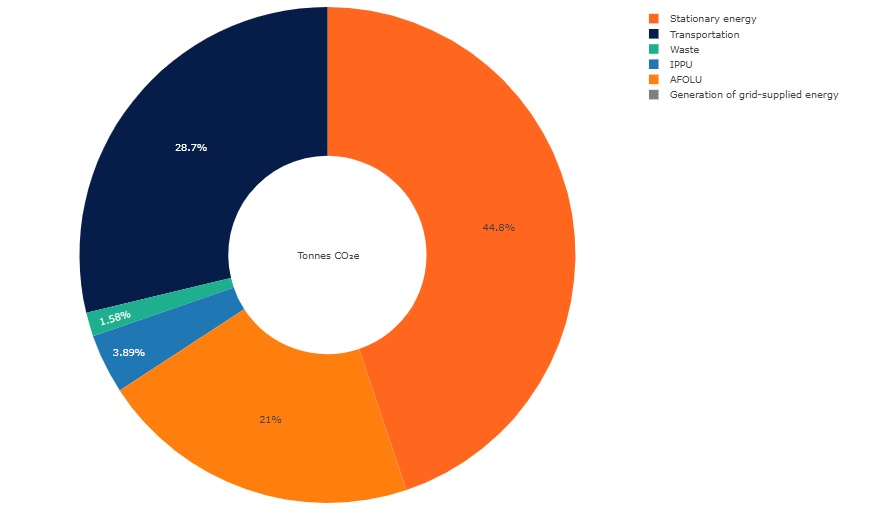Climate change is everyone’s responsibility
While the council’s direct emissions from natural gas, electricity, directly controlled owned transport, and grey fleet were 807 tonnes CO2e in 2019-2020, the figure for the district area was estimated to be over 500,000 tonnes in 2019 (BEIS UK local authority and regional carbon dioxide emissions national statistics: 2005 to 2019).
It is clear we need to act individually and collectively if we are going to meet national targets.
If you are interested in joining a local community group to take practical action, or simply further your understanding of climate change issues then the Everybody's Talking About website has more information including links to local events.
The carbon footprint of the Derbyshire Dales
Where do our district wide carbon emissions come from?

The carbon footprint of the Derbyshire Dales in 2019 (Scatter, 2019)
- Stationary energy (44.8%) - emissions from use of fuel in buildings, manufacturing industries, construction processes and power plants
- Transportation (28.7%) - emissions from the combustion of fuel or use of electricity during journeys travelled by road, rail, air or water for inter-city and international travel
- Waste (1.58%) - emissions from the disposal and treatment of solid waste and wastewater (emissions produced through incineration, aerobic and anaerobic decomposition)
- Industrial processes and product use (IPPU) (3.89%) - emissions from industrial processes
- Agriculture, forestry and other land use (AFOLU) (21%) - emissions from methane created by livestock, nutrient management for agricultural purposes, and land use change altering soil compositions
Support for local businesses
If you are a business in the Derbyshire Dales keen improve your environmental performance then you may be able to receive support from the Accelerator Programme.
The Accelerator project offers net zero support to help businesses at any stage of their sustainability journey to reduce the cost of their energy bills and improve energy efficiencies. Free energy audits are available to support the development of a de-carbonisation plan in addition to training and 1-2-1 consultancy on a range of topics including waste management and Investors in the Environment.
To discuss the needs of your business, and discover what support may be available, you can also speak to our Business Advisor.

